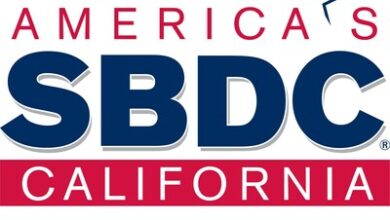Revised BTech curriculum of KTU focuses on entrepreneurship

The new curriculum places a strong emphasis on project-based learning. Instead of relying on traditional classroom instruction sreedevi
THIRUVANANTHAPURAM: The APJ Abdul Kalam Technological University’s (KTU) revised BTech curriculum, to be implemented this academic year, aims to equip the students to be industry-ready. The new curriculum has been designed to ensure that students excel in the rapidly evolving technology landscape and develop entrepreneurial skills, going beyond the traditional goal of securing employment after graduation.
The curriculum also ensures that the students are adept with the latest technological advancements through the introduction of next-generation courses such as Artificial Intelligence (AI) and Data Science across all BTech programmes. Additionally, the new curriculum seeks to foster a deep understanding of subjects by minimising content overload.
Addressing a press conference in Thiruvananthapuram on Tuesday on the revised BTech curriculum, Higher Education Minister R Bindu said it aligns with the state government’s goal of transforming the state into a knowledge-based economy.
The minister said that with the emergence of cutting-edge technologies such as robotics, the Internet of Things (IoT), AI, data science, and blockchain, the future of engineering holds limitless opportunities. The key highlights of the new curriculum are:
Academia-industry collaboration
The revised curriculum is designed to prepare students to be ready for the industry or even become employers by fostering collaboration between academia and industry. This involves integrating industry insights into the curriculum and establishing partnerships to ensure that students are equipped with the skills and knowledge that the industry needs. The new curriculum envisages joining hands with the industry and ensuring academia-industry partnership in syllabus formulation.
Project-based learning
The new curriculum places a strong emphasis on project-based learning. Instead of relying on traditional classroom instruction, this educational approach involves students working on projects. This method aids in developing practical skills and allows students to acquire and apply theoretical knowledge to real-world problems. These projects are supported by government and non-government initiatives such as Nasscom, K-DISC, and the Kerala Startup Mission (KSUM).
Socially relevant projects
The university, through this curriculum, encourages students to embark on and implement projects that are socially relevant, with the support of the Kerala Development and Innovation Strategic Council (K-DISC). This initiative aims to instill a sense of social responsibility in students and promote the development of projects that benefit society.
Internships: The new curriculum allows students to complete a six-month internship during their seventh or eighth semester. Internships, lasting four to six months, can be done at selected institutions. Additionally, industries can collaborate with colleges in developing the syllabus.
Courses on entrepreneurship and intellectual property rights: The revised curriculum incorporates courses on entrepreneurship and intellectual property rights, in collaboration with the Kerala Startup Mission. These courses aim to equip students with the skills to create employment opportunities, rather than just being job seekers. Additionally, students can take entrepreneurship as a minor subject, providing flexibility for those who do not require extensive knowledge in the field.
Increased number of electives
The revised curriculum offers more electives, enabling students to choose courses that suit their interests and career goals. This gives students flexibility to choose electives of their choice.
What’s different?
Previously, all engineering programmes had the same syllabus for fundamental subjects like physics, maths, and chemistry. However, in the new curriculum, these subjects will be tailored to the specific course chosen by the student. According to KTU vice chancellor Saji Gopinath, the varsity’s aim is to finalise the syllabi for all eight BTech semesters before the commencement of the next academic year. The new curriculum will prioritise digital tools, entrepreneurial skills, and international competitiveness, ushering in a new era of engineering excellence, he added.
Challenge courses
The new curriculum proposes ‘challenge courses’ taking into account the varying intellectual abilities of students. It allows students to earn academic credits without undertaking traditional coursework. These courses can be taken selectively, enabling a student to achieve the 170 credits required for a BTech degree. This approach allows students to use one of the last two semesters for an internship.



